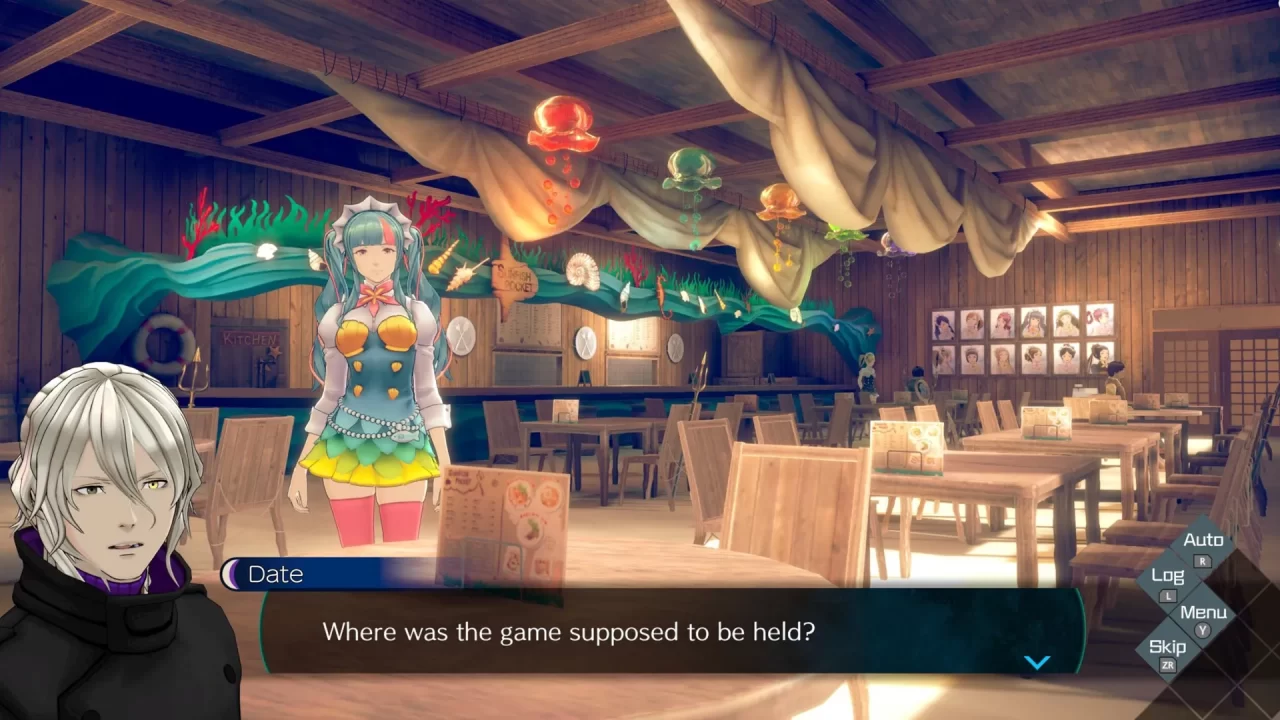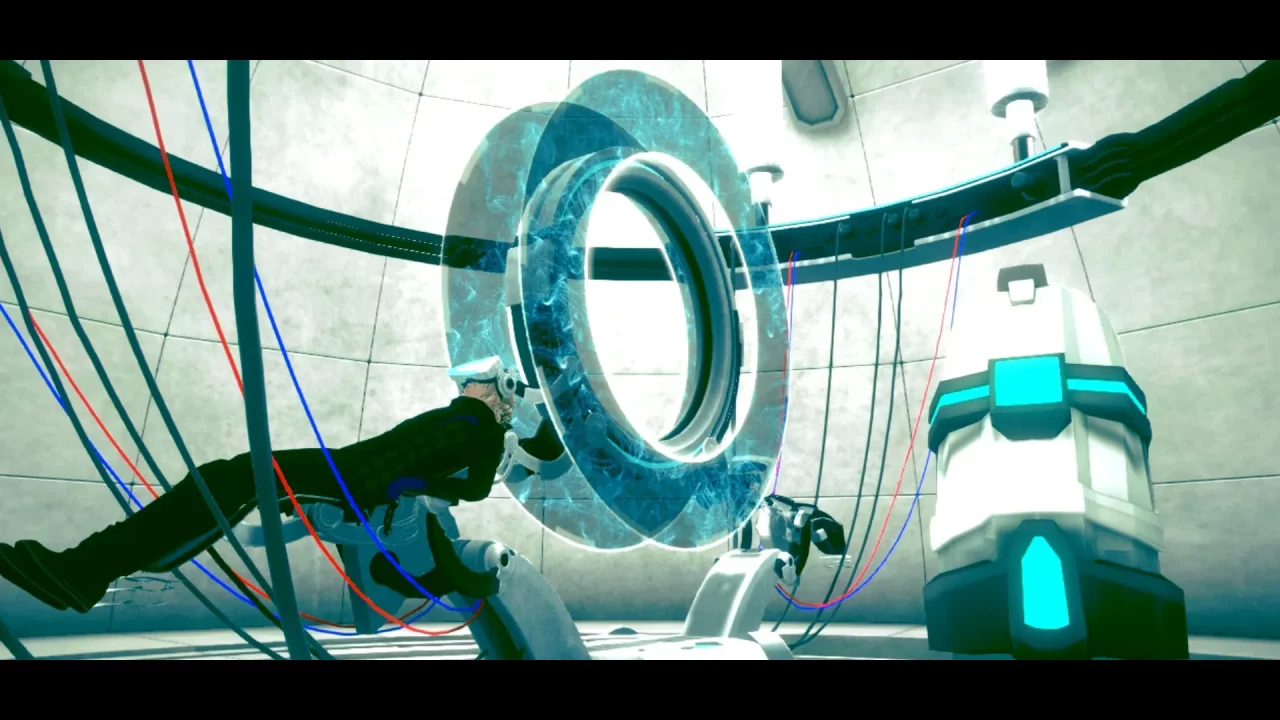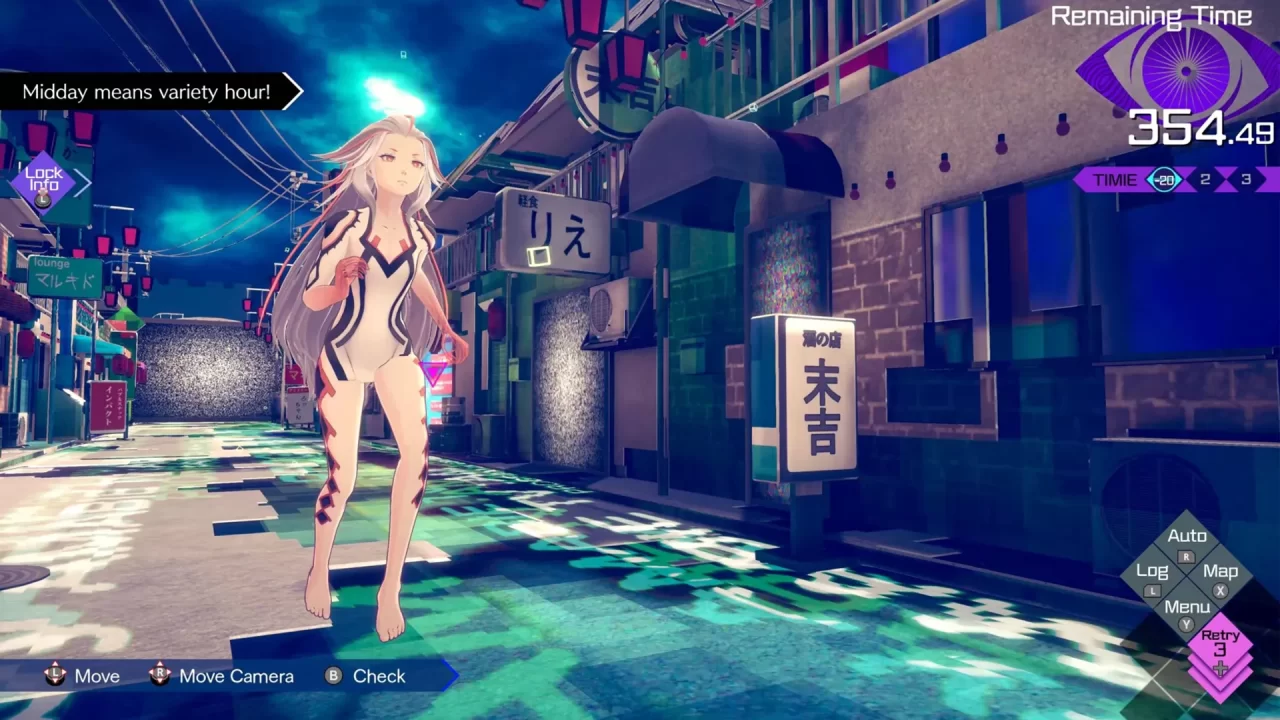In his review of Dragon Quest XI, Tim Rogers described the Dragon Quest series as “hangout games,” where much of their appeal comes from spending time with the cast and soaking in their personalities. This concept informs much of my perspective on ensemble casts, especially when it comes to RPGs. Kotaro Uchikoshi’s AI: The Somnium Files games are not RPGs, and although Dragon Quest director Yuji Horii shares some fascinating history with AI‘s developer Spike Chunsoft, the two franchises share few immediate similarities. From where I stand, though, different genres can absolutely manifest different, but distinctly recognizable forms of “hangout” vibes.
No Sleep For Kaname Date – From AI: The Somnium Files is an easy example of what this looks like in a mystery adventure game. Most of my enthusiasm for playing it centered on its dysfunctional cast and their uniquely entertaining chemistry, carried over from the other Somnium Files games. Uchikoshi’s characters remain largely intact, as do the running gags and sense of humor, despite his stepping back to the positions of series director and scenario supervisor. The game also features a unique setup, with prominent supporting character Iris Sagan puzzling her way through a gauntlet of deadly escape rooms aided by protagonist Kaname Date, in the vein of Uchikoshi’s Zero Escape series. Despite this promise, No Sleep For Kaname Date ultimately lacks the intrigue that made AI: The Somnium Files both a great hangout game and an engaging sci-fi thriller. While its weak central mystery and bizarre pacing thankfully don’t sink the experience, it’s probably for the best that this remains a smaller side venture than a main series title. Fans will probably enjoy it, but hopefully, a more substantial offering isn’t too far behind.
Part of the problem is tied directly to the game’s premise. Date’s mission to locate Iris before she’s killed by self-proclaimed reptilian Akemi’s escape room traps takes up the entire plot, and there are few significant developments that alter how he approaches the case. Instead, the plot is littered with interruptions. One of the major examples is the series’ signature Somnium sequences, in which Date uses a device called a Psync machine to dive into a subject’s dreams. From there, he directs his AI partner Aiba through these dreams to advance his investigation.
No Sleep For Kaname Date is a shorter game than its predecessors (my Switch playtime was around a dozen hours), so there are fewer Somniums to explore, and their placement is often ill-considered and arbitrary. These are still memorable segments, with the ambient soundtrack and surreal visuals bolstering them. But even with their off-kilter charm, an interesting focus on parsing dream logic over real-world logic, or compelling character beats, the Somniums’ questionable story relevance is an overall net negative.
Not helping matters is the structure and pacing of the mystery. Certain plot threads end up being tangential distractions with poor payoff, characters often make strange leaps of logic, and a frighteningly large number of Date’s friends withhold essential information from him for nebulous reasons. While I’m usually willing to defend characters who make questionable decisions, in this case, it feels especially contrived. And since many of them lead to the aforementioned irrelevant tangents, they don’t even make for good tension spikes.
One might expect some of the big, shocking swerves from prior games to salvage this aspect. The AI series is no stranger to idiosyncratic plot twists, after all. However, there isn’t anything too groundbreaking here. The story, despite its uneven pacing, is fairly straightforward, and any hints of a more complex explanation are more set dressing and false leads than they are foreshadowing. Details behind many story events are only revealed via massive infodumps later on. The best thing I can say about the narrative is that its failings aren’t so egregious as to render it completely incoherent or a total slog. If nothing else, No Sleep for Kaname Date‘s relatively lean length ensures that by the time it becomes clear how thin the narrative is, it will nearly be over.
Thankfully, the escape room sequences are genuinely fun and require a reasonable amount of thought, making for a fun callback to Uchikoshi’s work on Zero Escape, sometimes even borrowing aesthetic touches like sound effects from those titles. Some solutions might seem obscure at first glance, but all of them are ultimately fair. It helps that the rooms themselves are all striking locations that also maintain a distinct atmosphere from the surreal quality of the Somniums. Furthermore, since Date and Aiba are in contact with Iris and their banter is as strong as ever, there are plenty of fun character interactions.
While No Sleep For Kaname Date is shorter than the main Somnium Files titles, it’s just efficient enough to cram in an adequate helping of fun character interplay. While the more lewd jokes are somewhat tired, Date and Aiba’s barb-trading, with stellar performances from Greg Chun and Erika Harlacher, remains a selling point, whether it’s just the two of them or with the supporting cast. The rest of the voice actors bring the laughs effortlessly, bringing out their roles’ appeal regardless of how small or large their parts are. The game also gives Date the opportunity to interact with characters who debut in AI: The Somnium Files – nirvanA Initiative, lending a bit more weight to their presence in that title. And new characters like Psync Machine engineer Hina feel right at home with the established cast.
There’s also a bit more to the humor than just listening to Date shoot the breeze with his eccentric friend circle. Like the previous games, you can find some of the funniest lines by examining the environment, a practice the game further encourages by including multiple gag endings. While they become some of the game’s highlights through their sheer absurdity, they’re short, so don’t expect full branching stories like the other games. And if the main story doesn’t have enough banter for your tastes, there’s some post-game bonus content that expands on them a bit further and even has fun aesthetic callbacks to some of Chunsoft’s early work. Just be ready to revisit the Somniums to unlock them or grind for currency. It’s thankfully pretty quick if you’re just speeding through it, even if the novelty is lost on repeat playthroughs.
All of this does raise the question of how much a fun cast can offset an underwhelming story. While other games meet their narrative bar through satisfying stories with the opportunity to get to know a group of enjoyable personalities as a cherry on top, No Sleep For Kaname Date sits uncomfortably close to that bar. Whether it’s above or below that threshold may vary from person to person. I’m usually easier on media that has good characters and poor plotting than the opposite. However, judging this balance is more difficult when considering how deeply the two components are intertwined in the vast majority of stories, and how much initial expectations can affect overall assessment.

My advice is to temper those expectations. Treat No Sleep For Kaname Date as a chance to spend time with Date, Aiba, Iris, and the rest of the gang rather than a tightly written thriller. Admittedly, by lacking in the latter aspect, the game struggles to measure up to its fun and well-plotted predecessors; a problem likely to be magnified if this is your introduction to the series. So, despite the standalone plot, playing AI: The Somnium Files first is probably the best call. And if, after that playthrough, you’re aching for another hangout, the new elements in No Sleep For Kaname Date do lend it just enough of an identity to at least give it a chance.
This review may come across as more negative than intended, simply because there’s such a strong baseline to compare it to. No Sleep For Kaname Date has pros than cons for me because I have a preexisting investment in the aspects it carries over the most elegantly from the rest of the series. The cast, puzzles, and humor are undoubtedly its best parts, and the story’s issues are thankfully not so severe as to drag those parts down. I at least recommend it to fans of the series, just with a few asterisks.




